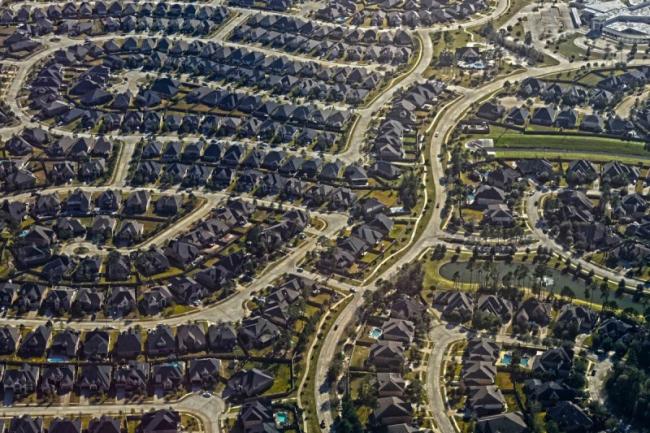Articles Menu

Dec. 23, 2023
Build a house in Wainfleet. Build the identical house in downtown Toronto. Bring them both to market the same day. The “housing” is exactly the same, but the house in Toronto might sell for a million dollars more than the house in Wainfleet.
In large part, that’s because the land underneath the housing is far more valuable in Toronto than it is in Wainfleet. That difference should seriously impact the way we approach any “housing” problems and solutions—but practically none of Canada’s pundits, politicians, or economists are discussing it. As the renowned economist James K. Galbraith said to me in an interview last year, “if you look at neoclassical production theory, it has two factors: labour and capital. Where’s the land? It’s missing. It’s been edited out. It’s been airbrushed out of the photograph.” The Canadian housing conversation has been one of neoclassical production, and it has come up dry.
At the same time, community land trusts, in which plots of land are placed under the control of a local non-profit, have proved capable of providing permanent affordability to those leasing the land from them, including in urban centres. During the 2008 foreclosure crisis, American homes on community land trusts were one-tenth as likely to foreclose than standard homes—even though their occupants tended to be lower income. Similarly, land value taxes can be distinguished from property taxes to punish speculation and incentivize development. This tactic was central to the redevelopment of San Fransisco after it was levelled by the earthquake of 1906. Within a decade the city had more than rebuilt, and with the best density in the country. In contemporary Singapore, meanwhile, almost 90 percent of the land is owned by the state while around 90 percent of the housing units are owned by their tenants.
I’ll say that once more for the folks gentrification has pushed into the cheap seats: in Singapore almost no one owns land and almost everyone owns their home. Land and housing truly must be distinguished.
Land, of course, is not produced by human beings: it is the work of Mother Nature. When we build communities on land, its value increases. The land becomes scarcer because there is less of it per capita, while it becomes more productive by virtue of us working jobs and increasing the goods and services produced upon it.
This isn’t inherently a problem if the community that produces that land value also controls it. If the land value is being extracted by a landlord, however, it creates a gaping and growing hole in the economy. The landlord—who neither created the land nor produced its value—is collecting unearned income. Worse still, as Henry George observed back in the 19th century, the harder we work to pay rent the greater the rent the landlord charges us. Celebrity chef Gordon Ramsay memorably identified this as the biggest secret challenge to running a successful restaurant: “Landlords, they win either way. So the more successful you are, the more they ask for. The less successful you are, the more demanding they are for the rent.”
Even though land value extraction is associated with right-wing economics, it’s actually bad for business too, as Ramsay’s quote demonstrates. In fact, there are four problems that quickly emerge when land value extraction is high:
It is nearly impossible to solve these problems without doing something about extracted land value. Even if producing a record supply of housing units could guarantee solving the affordability issue—and it is not clear that guarantee can be made—actually building that much housing with viable density comes with a terrifying price tag. Even common-good advocates of mass housing admit as much. If we don’t go after the land value itself, we are essentially trying to deflate a balloon by blowing on it.
What we need is a pin. Addressing the land value itself—either getting it into the public purse via land value taxes or public ownership, or massively expanding community control via community land trusts—is probably the only path to a solution that might get done and last more than five minutes.
While I have my own ideas regarding how we best should go about addressing land value, the conversation in Canada is too utterly vacant to put forward any personal proposal too strongly. We would be better served by a mass conversation.
So here’s my call: for one focused week, media discussions, conferences, civil servants, and municipal housing committees should all rigorously discuss the subject of land value, both the problems with its extraction and what is to be done about it.
Then let’s talk housing. We haven’t started yet.
Colin Bruce Anthes is an artist, educator, and democratic economy organizer. Colin has been artistic director of two theatre companies, taught in five post-secondary institutions across Canada, and founded Community Wealth Candidates in 2021. He has been a contributor to theAnalysis.news since 2022.